Leadership and Management in the Health and Social Care Sector
VerifiedAdded on 2023/04/21
|14
|1034
|241
Presentation
AI Summary
This presentation provides a comprehensive overview of leadership and management within the health and social care sector. It begins by defining health and social care, highlighting its multidisciplinary nature, including biology, sociology, nutrition, and ethics. The presentation then delves into various leadership and management theories, such as the Great Man theory, Trait theory, Contingency theory, Transformational theory, and Transactional theory, while also addressing the associated challenges. Furthermore, it explores motivation theories, including content and process theories like Maslow’s hierarchy, McClelland’s achievement theory, Adam’s equity theory, and Locke’s goal-setting theory, along with influencing factors like wages, job descriptions, and work environment. The impact of performance management on organizational effectiveness is discussed, along with the importance of team development and the roles of healthcare professionals in enhancing patient care and service delivery. The presentation emphasizes the significance of teamwork, communication, and collaboration in the health and social care sector, concluding with the role of motivation and leadership in maintaining quality and safety within healthcare settings. The content is supported by references to relevant academic literature.
1 out of 14
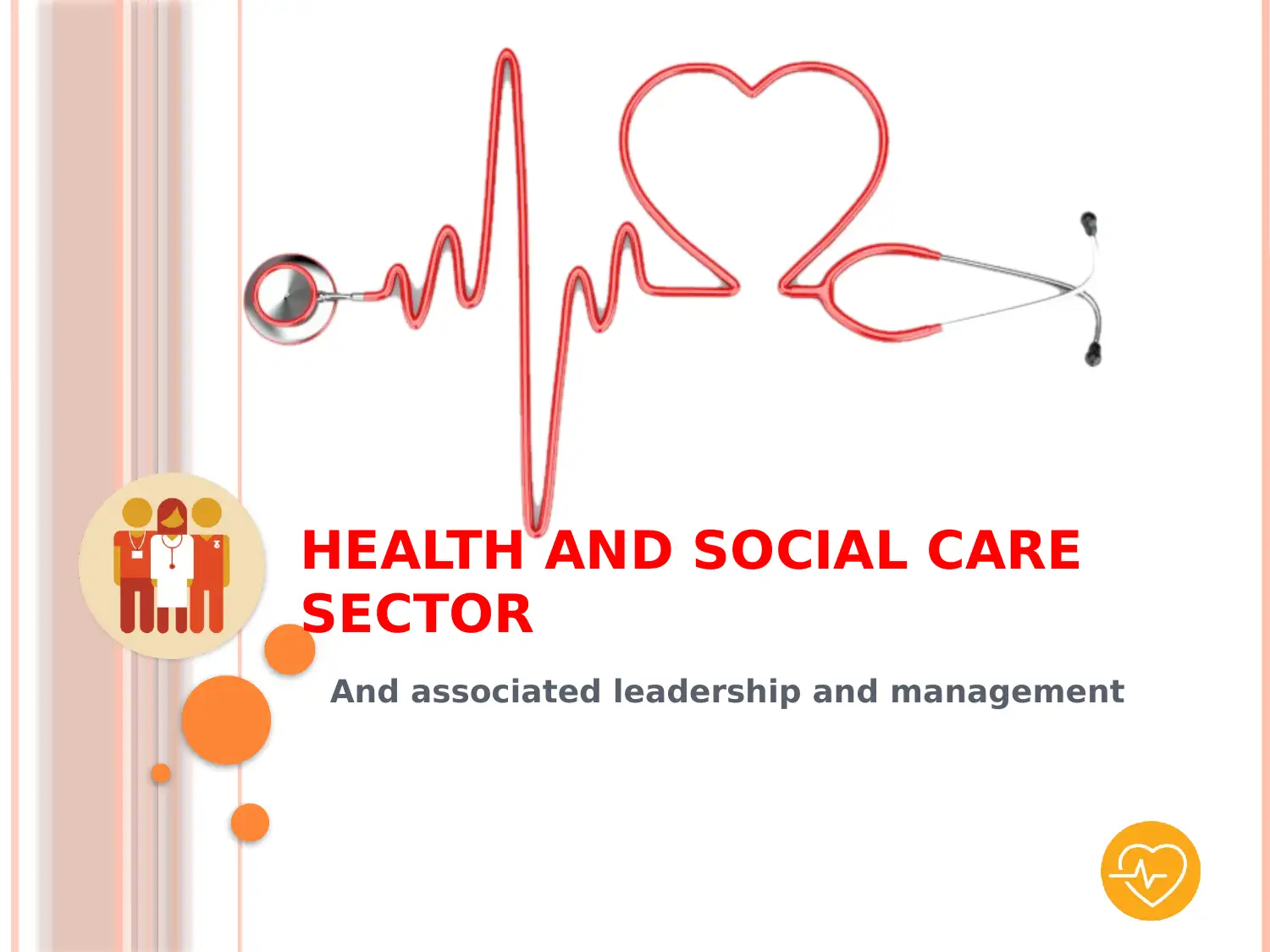
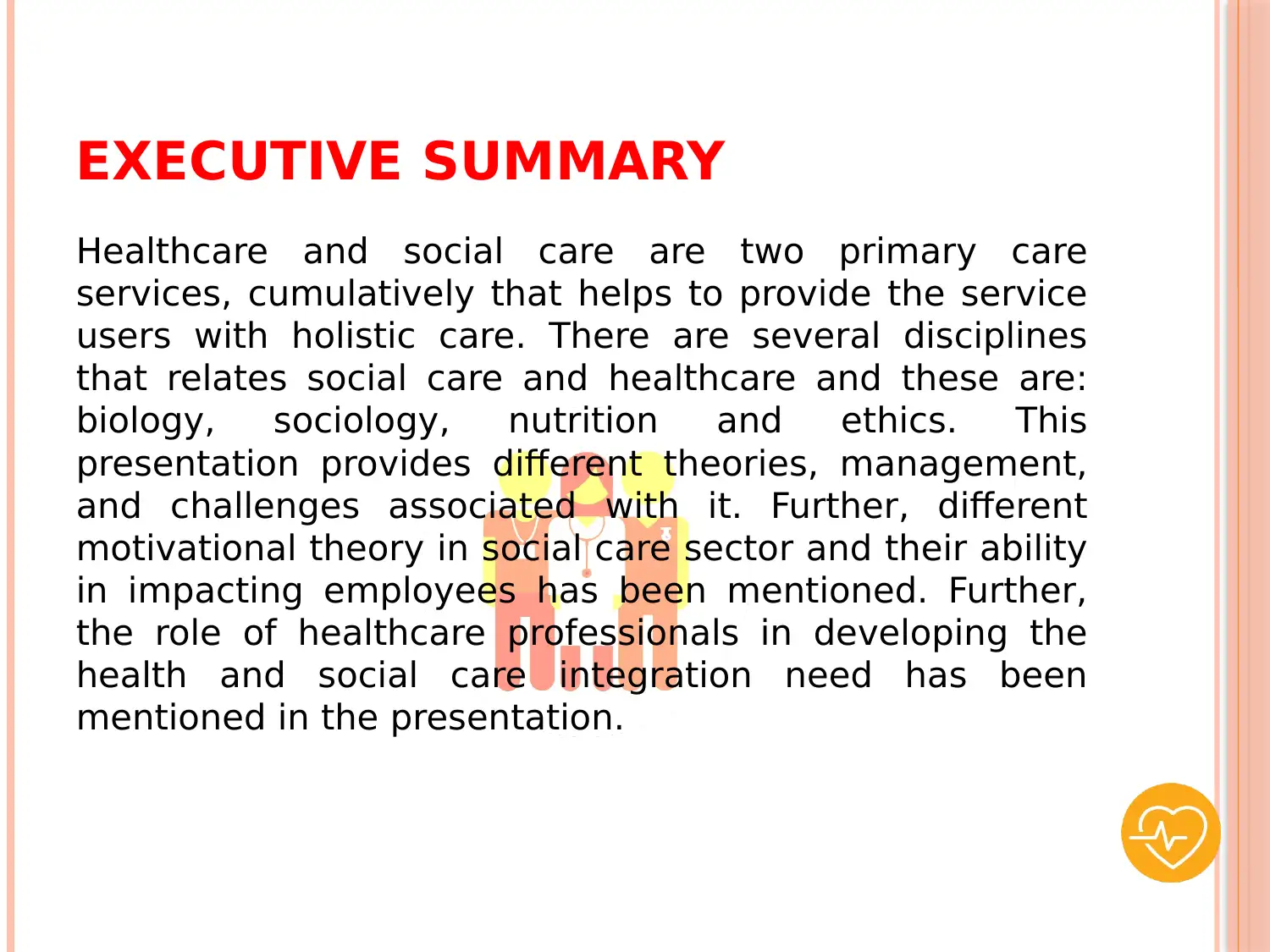
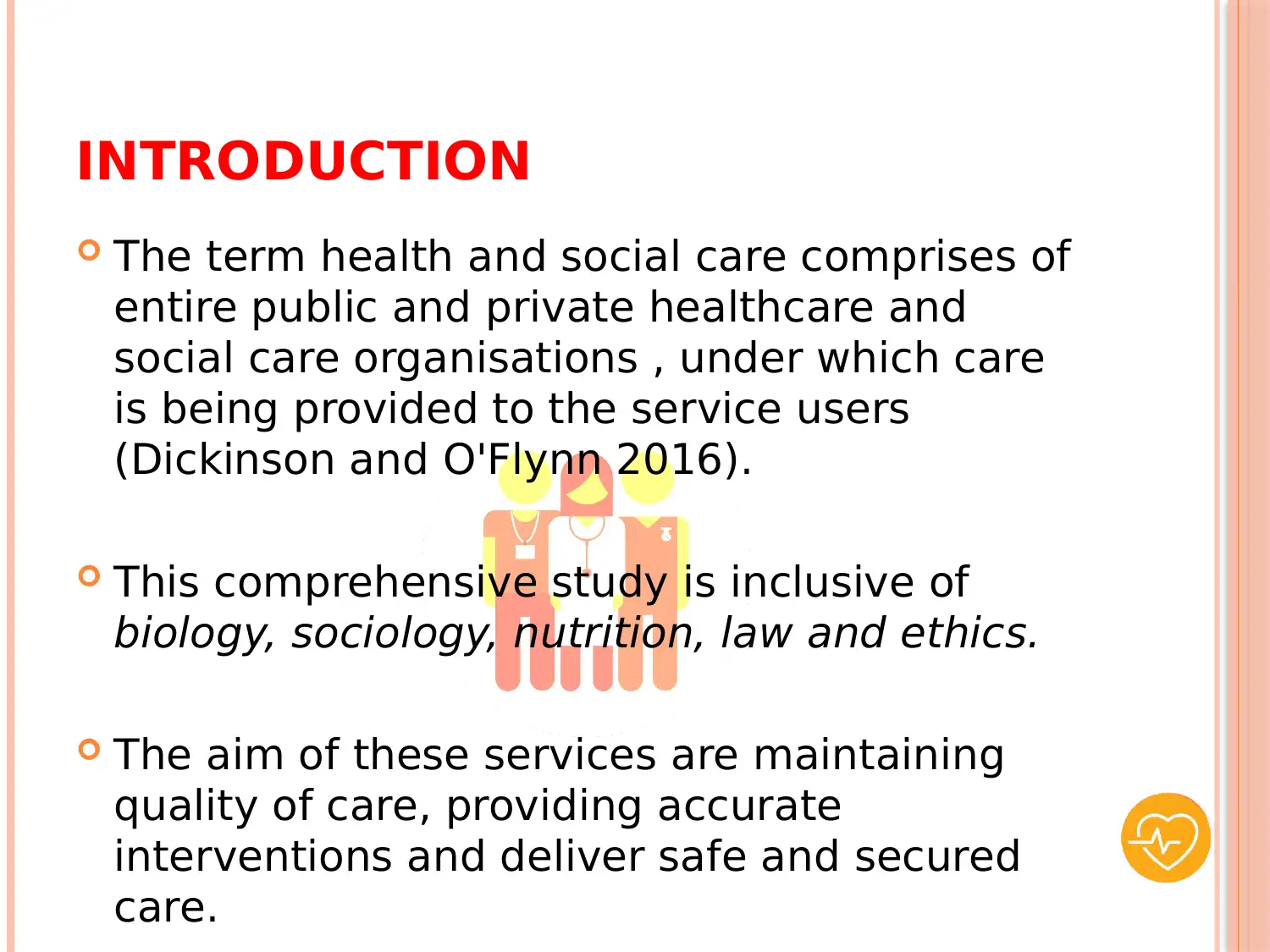

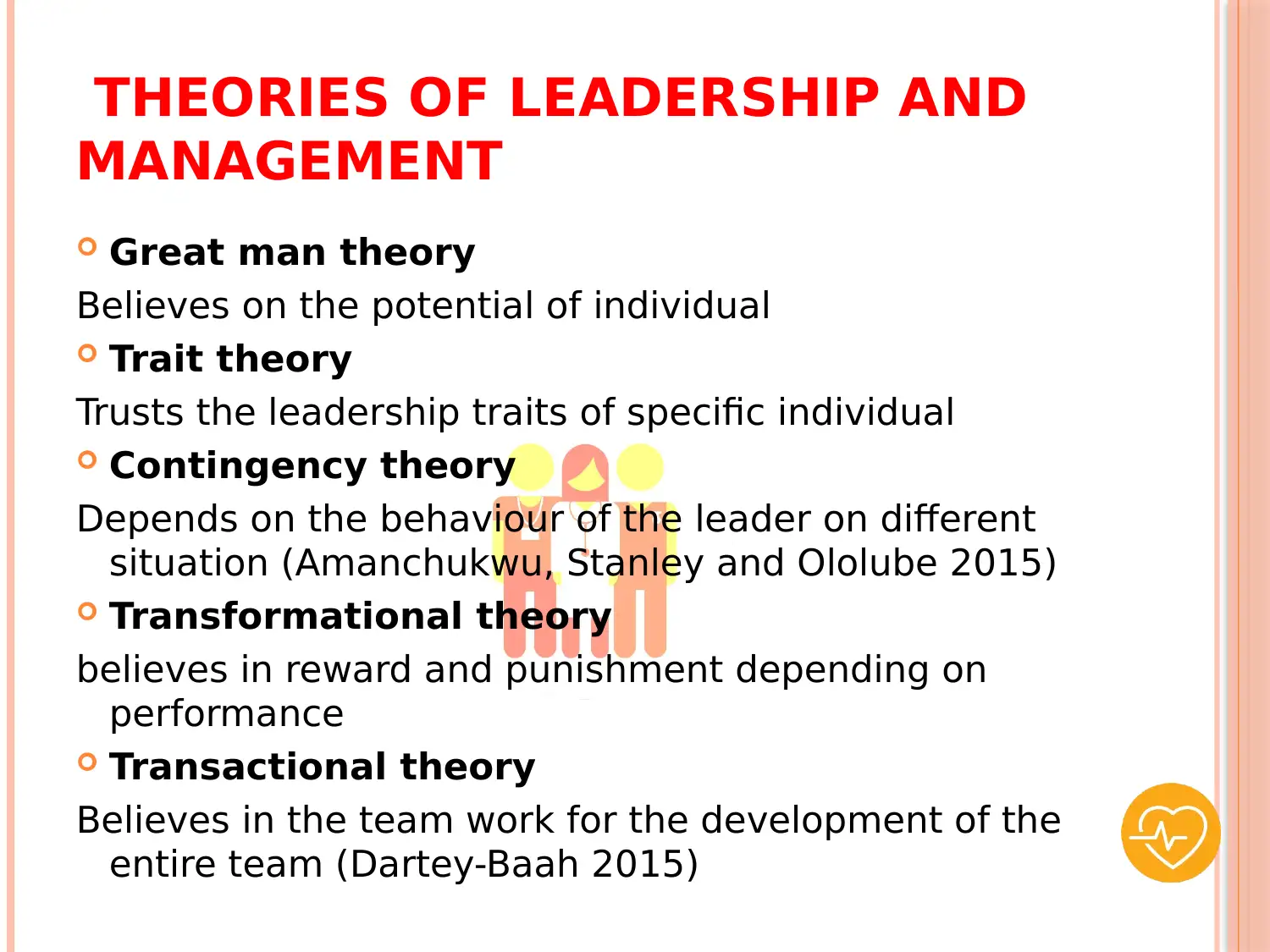
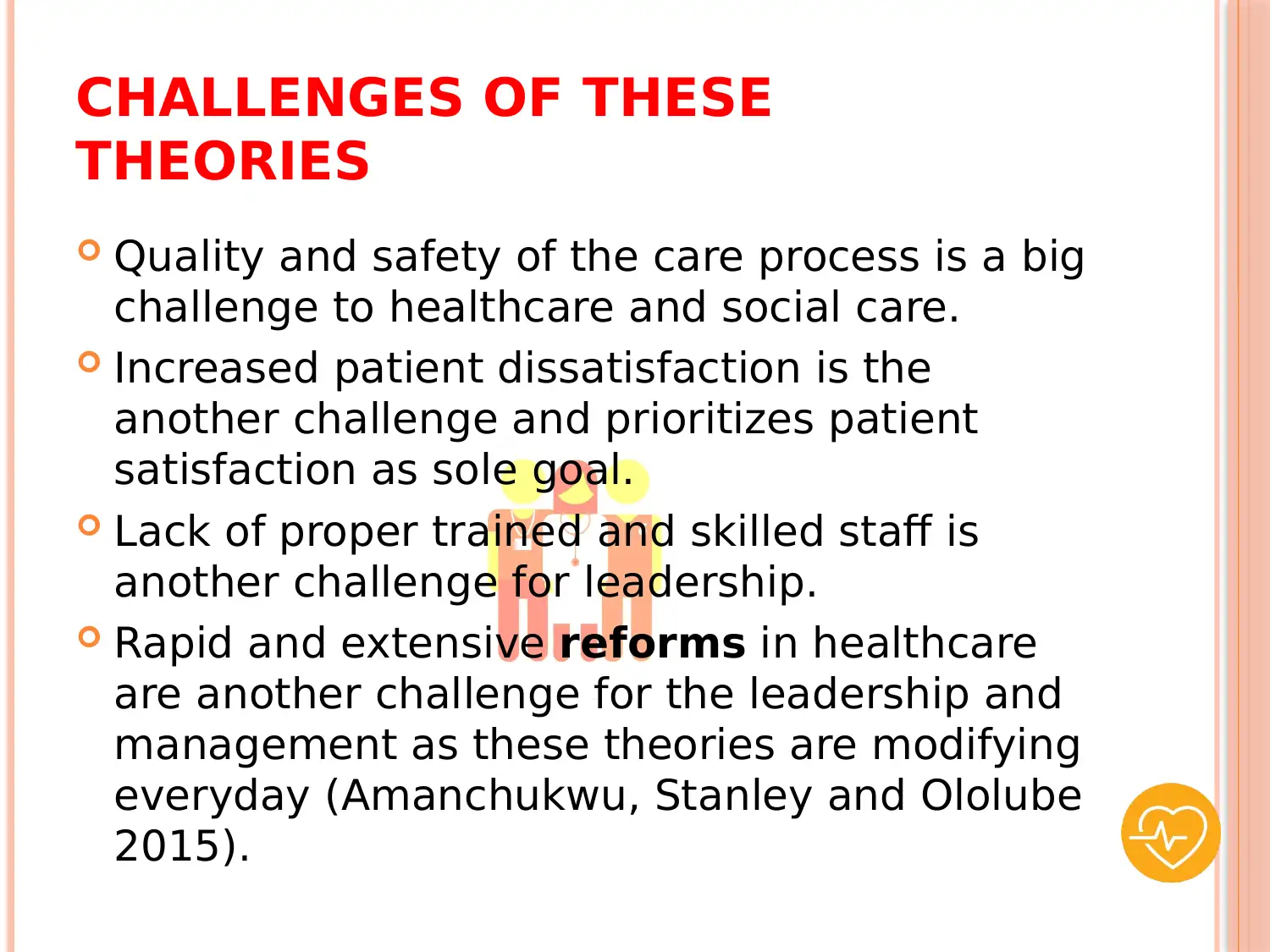
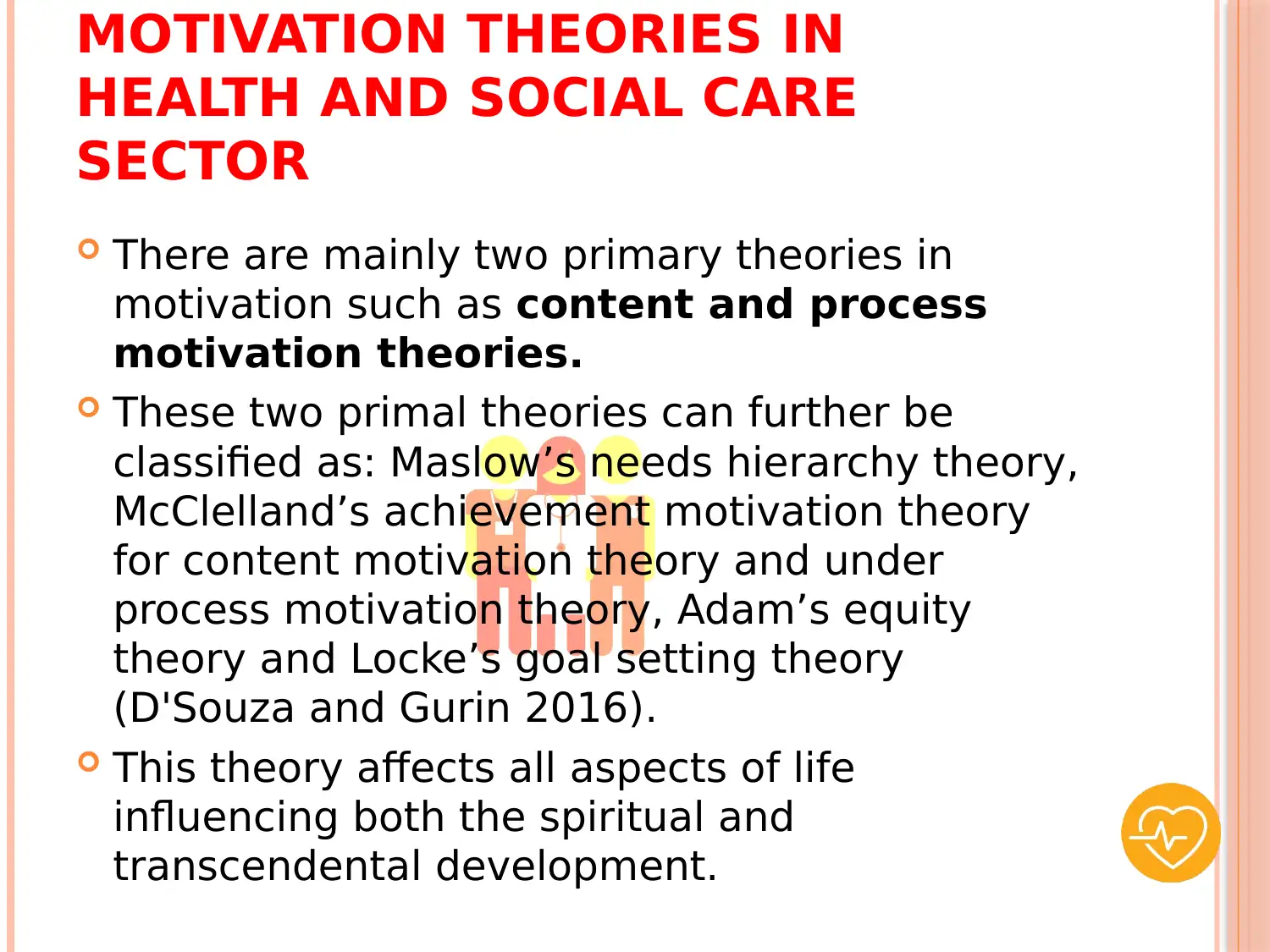
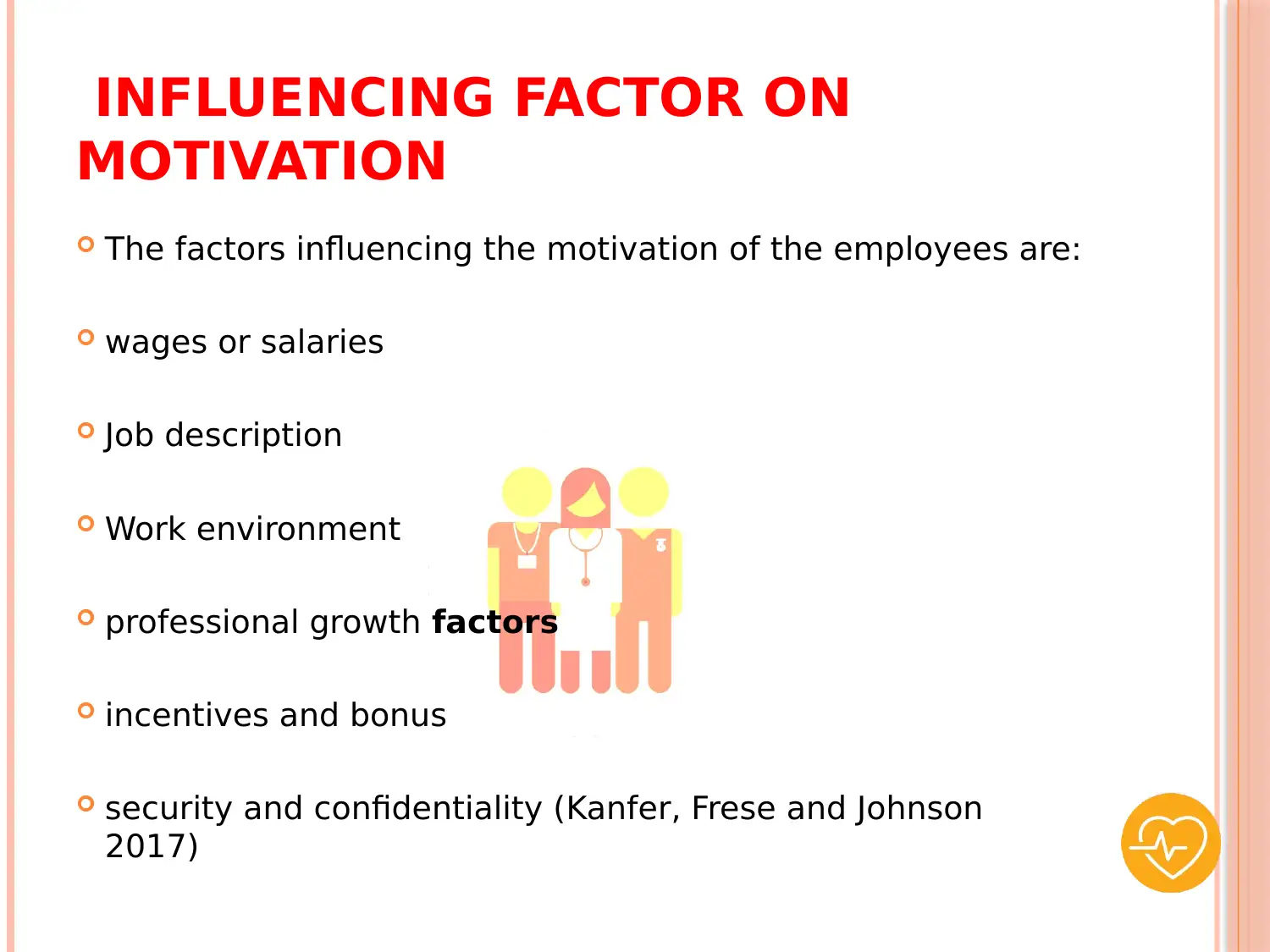
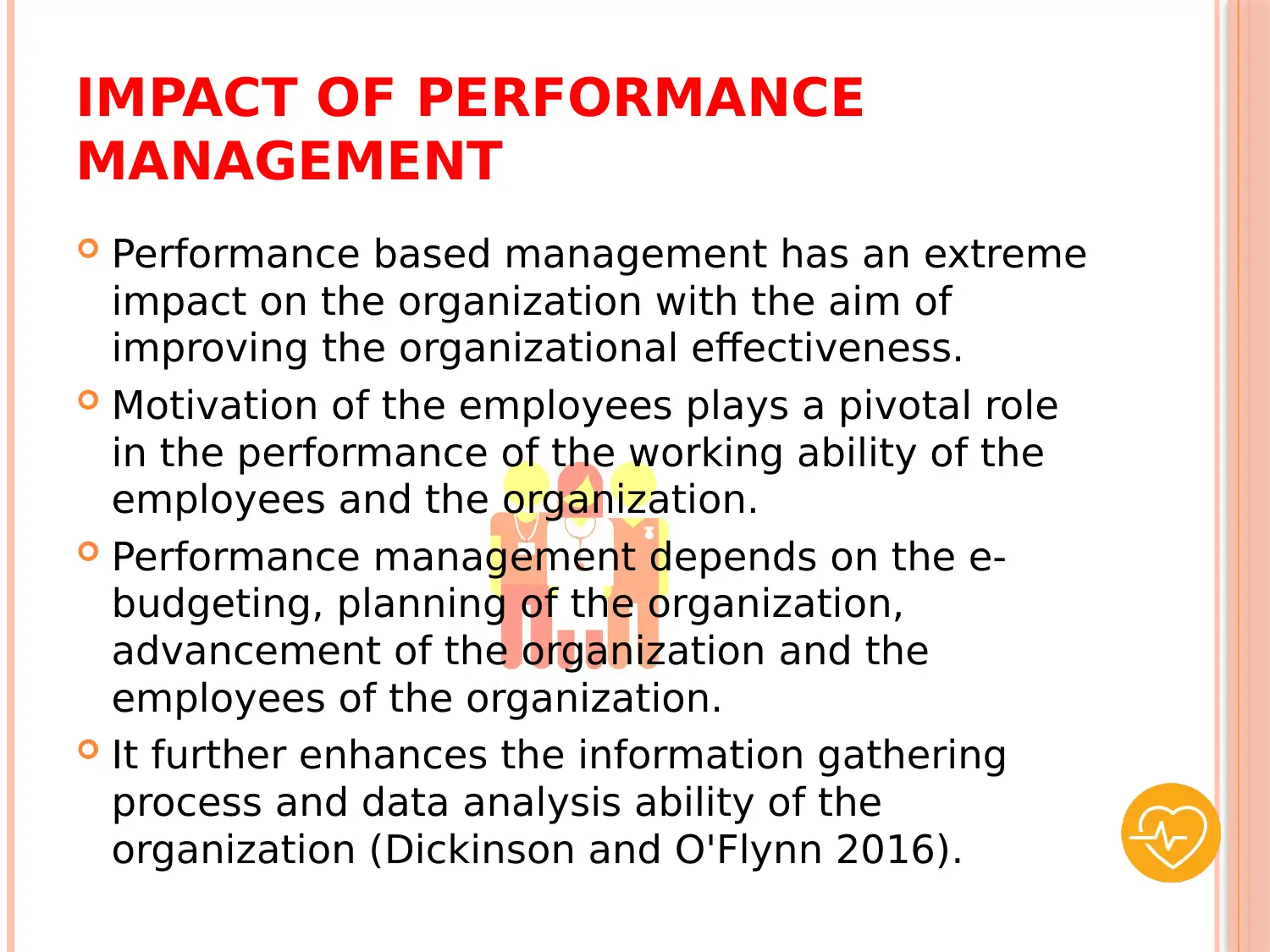
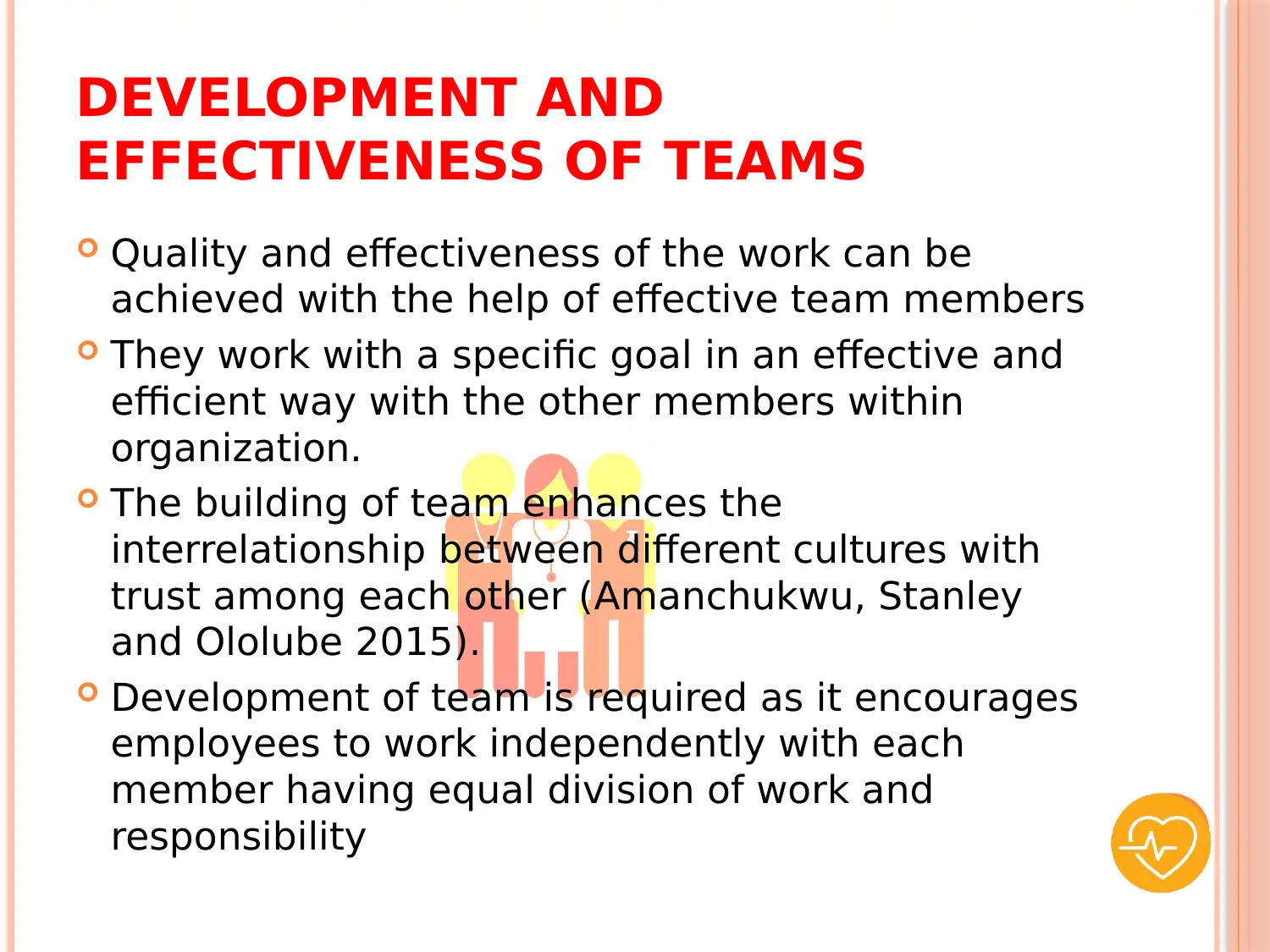
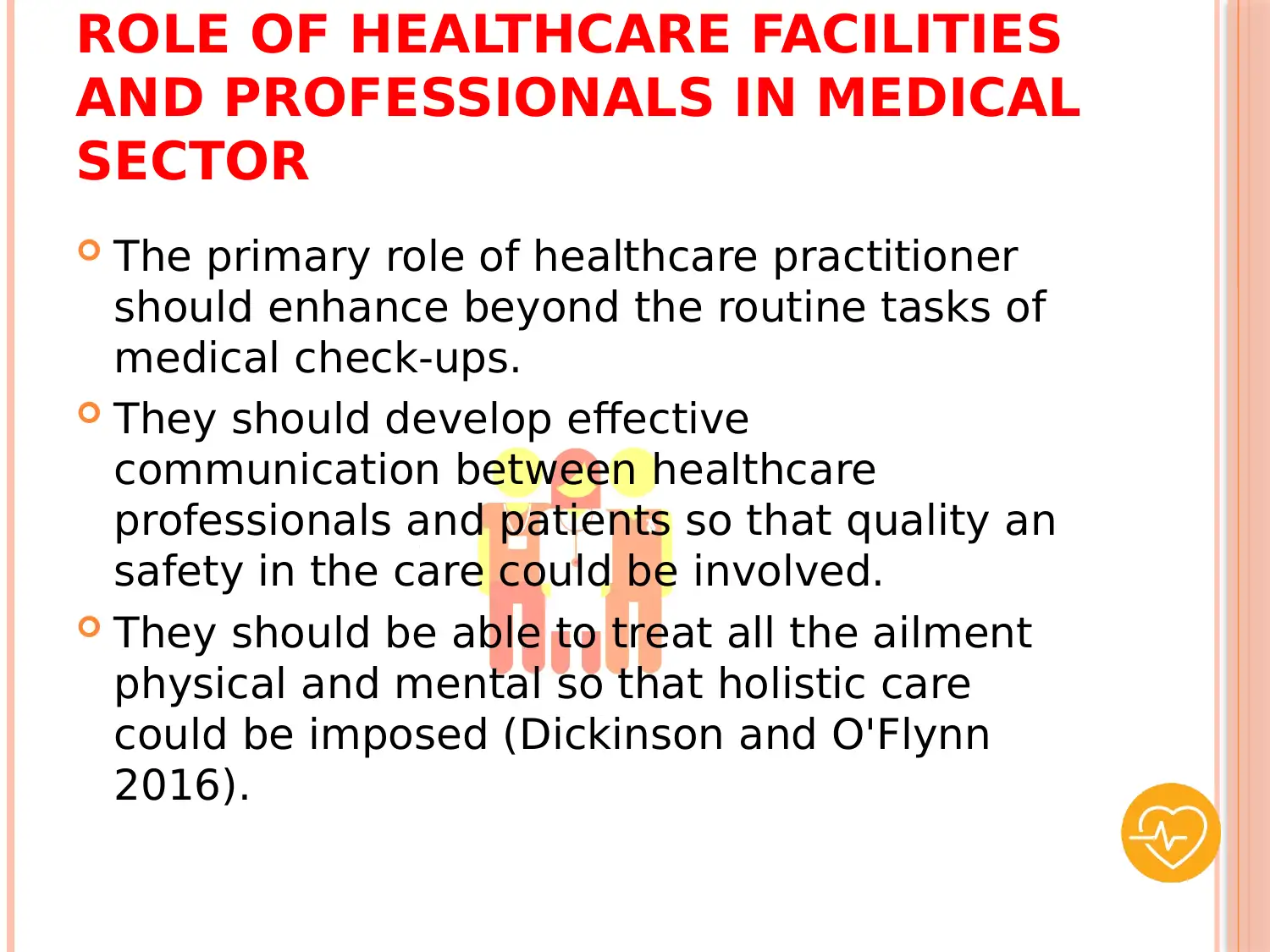
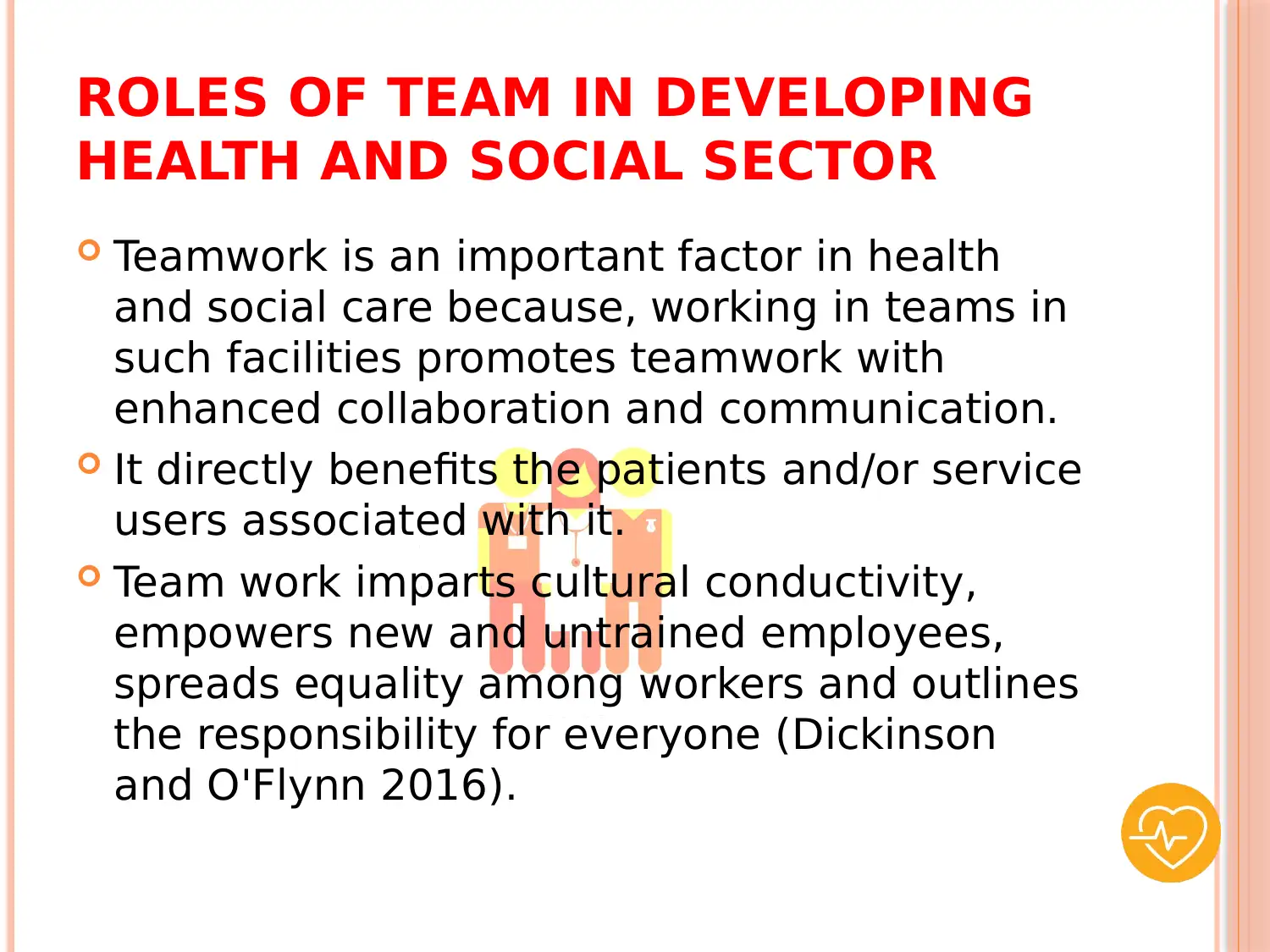
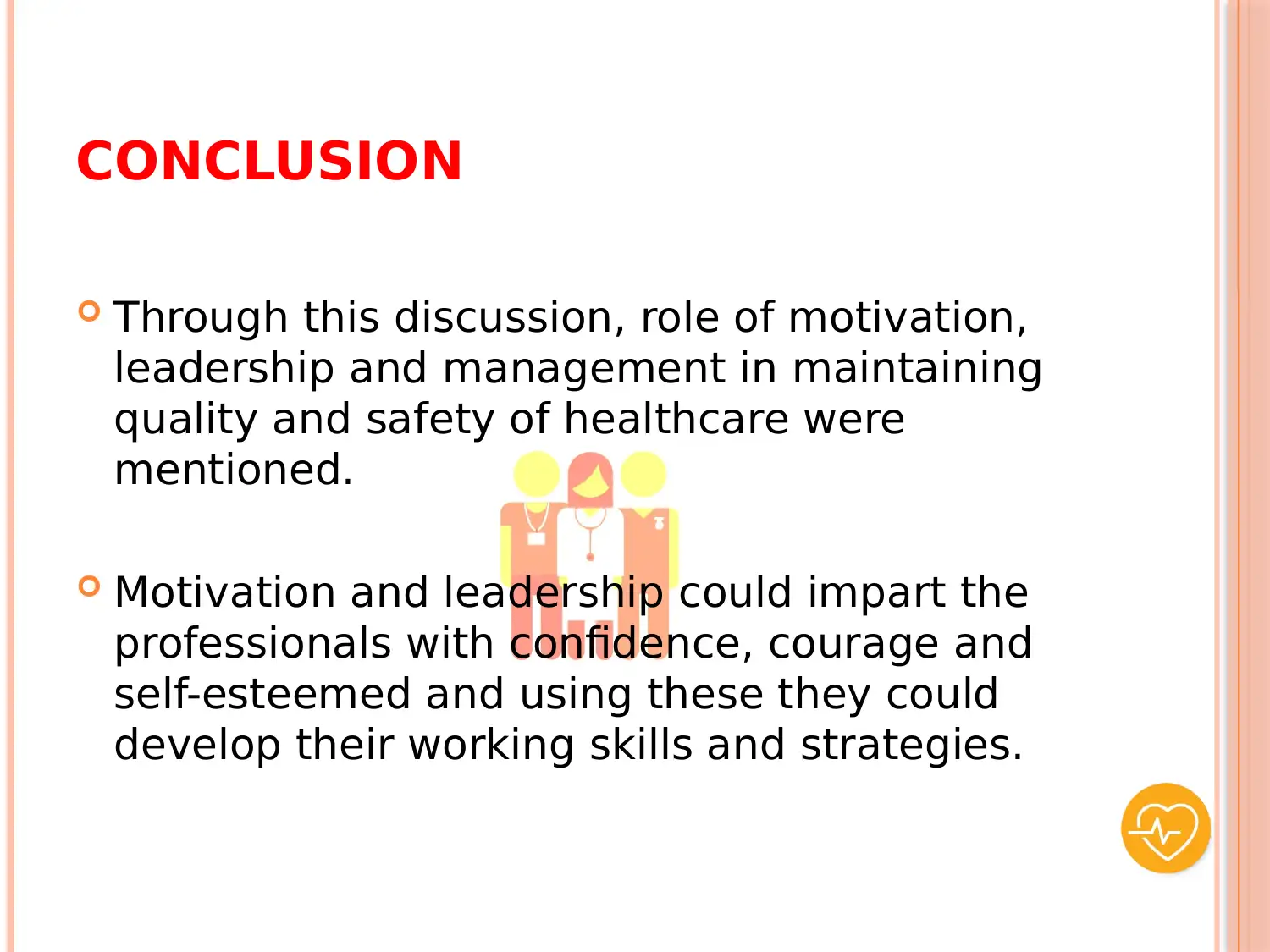






![[object Object]](/_next/static/media/star-bottom.7253800d.svg)